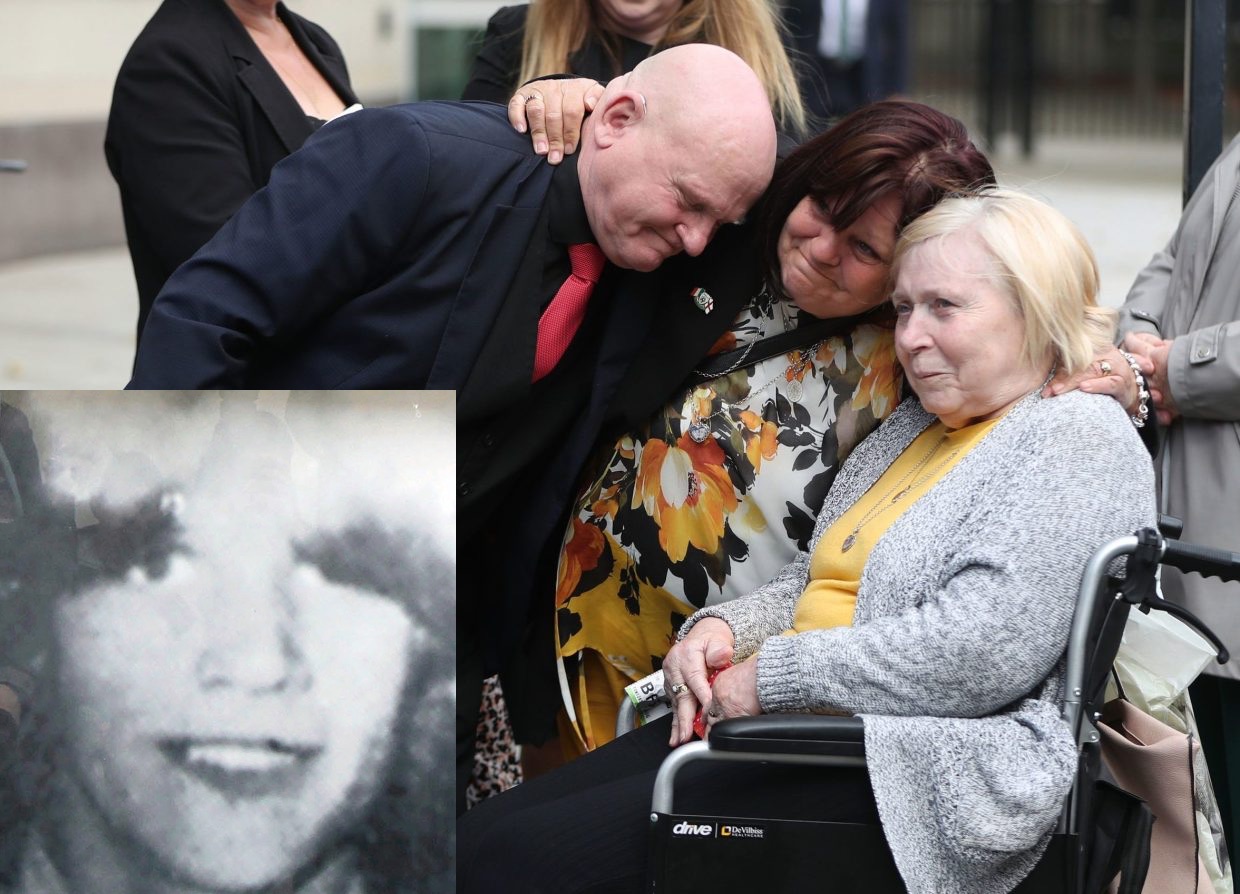
Belfast Coroner’s Court has found that the fatal shooting of 19-years-old Seamus Bradley during Operation Motorman on July 31, 1972, was ‘unjustified’.
The IRA Volunteer was unarmed and running away from a British Army armoured vehicle across an area of open ground when he was fired on. He was shot a number of times in the back by a British soldier from the Royal Scots Regiment. He bled to death from the wounds received.
The killing took place during what the British termed ‘Operation Motorman’, the attempt to ‘regain control’ of nationalist areas in both Derry and Belfast.
The inquest heard that Seamus Bradley had run in front of two British Army vehicle to distract them away from his brother. He shouted “Get Danny to those flats and get him away”. He ran across the path of soldiers to “attract the army to him, to protect me”, said Danny, who survived the attack.
The Coroner’s key finding was that “he could not reasonably have been perceived as posing a threat of death or serious injury to the soldiers in the Saracen or any other person.”
Judge Patrick Kinney found this week that the member of the Royal Scots Regiment who shot Mr Bradley had failed to adhere to the terms of the British Army’s own ‘Yellow Card’ rules on the use of force.
The coroner said: “The use of force by the solder was entirely disproportionate to any threat that might have been perceived.” He concluded: “The soldier was not justified in opening fire.”
The British Army had claimed the teenager was shot while he was in a tree and suffered additional injuries as he fell, a claim which the coroner said was false.
His family still believe he only died after being taken away and subjected to torture while being interrogated, and may even have died from asphyxiation.
However, Coroner Patrick Kinney said he was satisfied Mr Bradley was killed by a soldier who simply got out of a Saracen vehicle, dropped to one knee and opened fire. The individual soldier who shot Seamus Bradley has not yet been identified.
Judge Kinney also noted the youth could have survived his injuries if he had been treated properly.
“I find that if basic first aid had been provided to Seamus Bradley by the soldiers who collected him, and he was transported swiftly to hospital, he may well have survived his injuries,” he said.
The coroner said the initial investigation of the shooting was “flawed and inadequate”. He said he would send a report on the case to the Director of Public Prosecutions to consider.
Outside court, Mr Bradley’s family welcomed the verdict. His brother, who has long campaigned for a fresh inquest, said he was “very happy” with the overall verdict but dissatisified that allegations of torture had not been accepted. He has accused the RUC (now PSNI) of withholding colour autopsy photos which might have proved the fact.
Sinn Féin’s Raymond McCartney welcomed the decision. “The Bradley family have been campaigning for the truth about what happened to Seamus for many years,” he said. “All families bereaved by the conflict are entitled to access to the truth about the deaths of their loved ones.”
![[Irish Republican News]](https://republican-news.org/graphics/title_gifs/rn.gif)
![[Irish Republican News]](https://republican-news.org/graphics/title_gifs/harp.gif)

